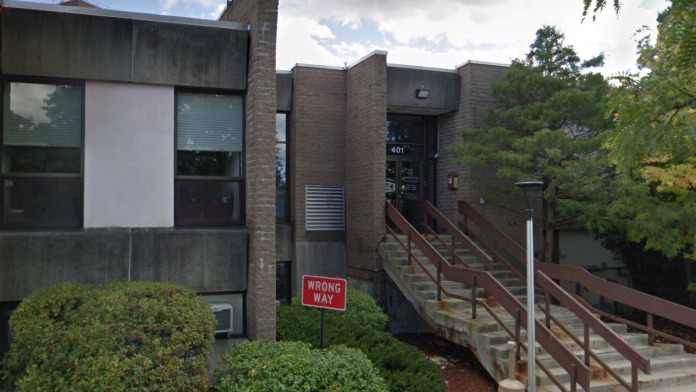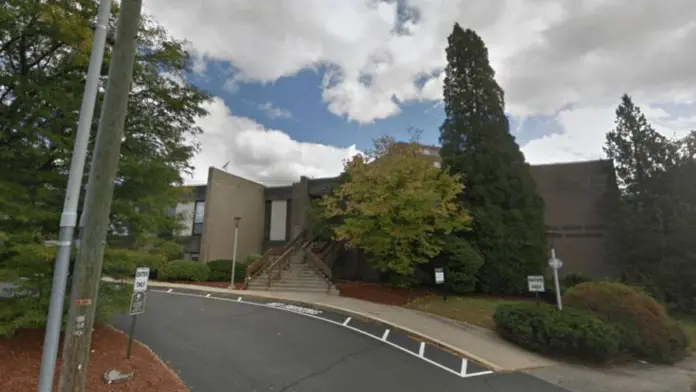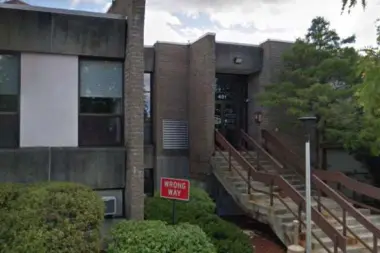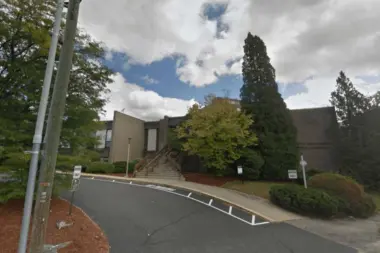The doctors here are uncaring and unprofessional. Better go somewhere they treat you with respect.
About The Mental Health Center of Greater Manchester
The Mental Health Center of Greater Manchester is a behavioral health clinic in Manchester, New Hampshire. They offer access to services such as medication assisted recovery, crisis intervention services and assertive community treatment. The facility accepts most health insurance plans including Medicaid and Medicare.
Medication Assisted Recovery on Your Schedule
In contrast to detox, medication assisted recovery allows you to receive medications to help with your withdrawal symptoms while still living your everyday life. The staff will complete a comprehensive assessment to determine if medication assisted recovery is appropriate for your needs. Once you’re in the program, the medical team will prescribe a safe dosage and monitor its effect.
You’ll participate in individual therapy where you’ll start focusing on the lifestyle changes you can make to maintain your sobriety. Your counselor will focus on topics such as anger management, building a support system and developing coping skills. The staff will meet with you on a weekly basis to ensure your treatment plan is supporting your recovery.
Immediate Crisis Response
Adults and seniors can sometimes need immediate assistance due to mental health or substance misuse crises. The rapid response team at the mental health center of Greater Manchester can send mental health clinicians and recovery coaches to you in these cases. They’re available 24 hours a day and seven days a week.
Recovery Services Near Downtown Manchester
Located on Cypress Street, the facility is a few minutes away from downtown Manchester. Outside of your treatment sessions, you can spend time enjoying local restaurants or taking a walk at Arms Park.
Latest Reviews
Rehab Score
Gallery




Other Forms of Payment
Medicaid is a state based program that helps lower-income individuals and families pay for healthcare. Medicaid covers addiction treatment so those enrolled can use their coverage to pay for rehab. When a program accepts Medicaid the client often pays very little or nothing out of their own pocket.
Private insurance refers to any kind of healthcare coverage that isn't from the state or federal government. This includes individual and family plans offered by an employer or purchased from the Insurance Marketplace. Every plan will have different requirements and out of pocket costs so be sure to get the full details before you start treatment.
Self-pay involves paying for treatment out of your own pocket. You can use savings or credit, get a personal loan, or receive help from family and friends to fund your treatment. If you don't have insurance or your insurance plan doesn't cover a specific program, self-pay can help ensure you still get the care you need.
Medicare is a federal program that provides health insurance for those 65 and older. It also serves people under 65 with chronic and disabling health challenges. To use Medicare for addiction treatment you need to find a program that accepts Medicare and is in network with your plan. Out of pocket costs and preauthorization requirements vary, so always check with your provider.
Military members, veterans, and eligible dependents have access to specific insurance programs that help them get the care they need. TRICARE and VA insurance can help you access low cost or no cost addiction and mental health treatment. Programs that accept military insurance often have targeted treatment focused on the unique challenges military members, veterans, and their families face.
Addiction Treatments
Levels of Care
Outpatient Programs (OP) are for those seeking mental rehab or drug rehab, but who also stay at home every night. The main difference between outpatient treatment (OP) and intensive outpatient treatment (IOP) lies in the amount of hours the patient spends at the facility. Most of the time an outpatient program is designed for someone who has completed an inpatient stay and is looking to continue their growth in recovery. Outpatient is not meant to be the starting point, it is commonly referred to as aftercare.
Residential treatment programs are those that offer housing and meals in addition to substance abuse treatment. Rehab facilities that offer residential treatment allow patients to focus solely on recovery, in an environment totally separate from their lives. Some rehab centers specialize in short-term residential treatment (a few days to a week or two), while others solely provide treatment on a long-term basis (several weeks to months). Some offer both, and tailor treatment to the patient's individual requirements.
Treatments
Many of those suffering from addiction also suffer from mental or emotional illnesses like schizophrenia, bipolar disorder, depression, or anxiety disorders. Rehab and other substance abuse facilities treating those with a dual diagnosis or co-occurring disorder administer psychiatric treatment to address the person's mental health issue in addition to drug and alcohol rehabilitation.
Mental health rehabs focus on helping individuals recover from mental illnesses like bipolar disorder, clinical depression, anxiety disorders, schizophrenia, and more. Mental health professionals at these facilities are trained to understand and treat mental health issues, both in individual and group settings.
Programs
Adult rehab programs include therapies tailored to each client's specific needs, goals, and recovery progress. They are tailored to the specific challenges adult clients may face, including family and work pressures and commitments. From inpatient and residential treatment to various levels of outpatient services, there are many options available. Some facilities also help adults work through co-occurring conditions, like anxiety, that can accompany addiction.
Serving in the military is both mentally and physically challenging, and can result in trauma that persists even after combat ends. Military programs are tailored to the specific and often complex needs of active duty personnel, veterans, and military families. Clients often access these programs through the U.S. Department of Veterans Affairs (VA).
Clinical Services
Cognitive Behavioral Therapy (CBT) is a therapy modality that focuses on the relationship between one's thoughts, feelings, and behaviors. It is used to establish and allow for healthy responses to thoughts and feelings (instead of unhealthy responses, like using drugs or alcohol). CBT has been proven effective for recovering addicts of all kinds, and is used to strengthen a patient's own self-awareness and ability to self-regulate. CBT allows individuals to monitor their own emotional state, become more adept at communicating with others, and manage stress without needing to engage in substance abuse.
Staff
Patricia Carty
President & Chief Executive Officer
Jonathan Routhier
Executive Vice President & Chief Operating Officer
Dr. Ashwini Saxena, MD
Chief Medical Officer
Dave Sponenberg
Vice President & Chief Financial Officer
Contact Information
401 Cypress St
Manchester, NH 03103